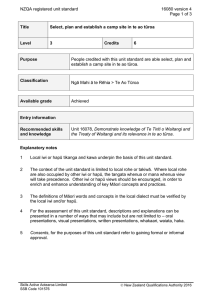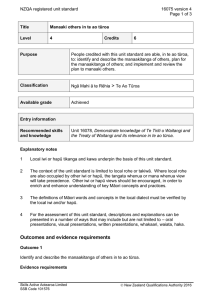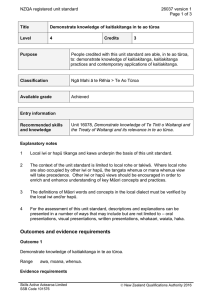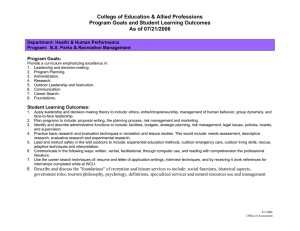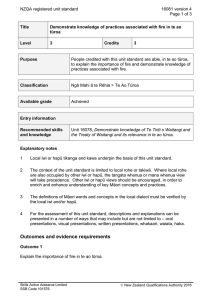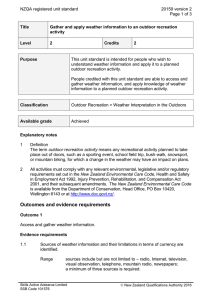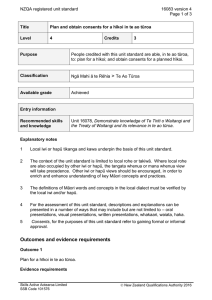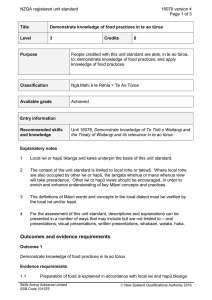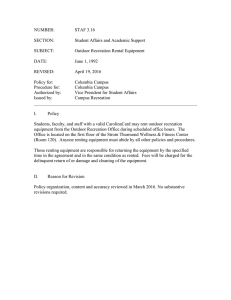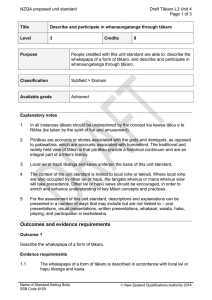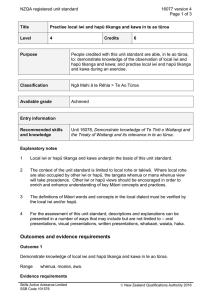NZQA registered unit standard 28510 version 1 Page 1 of 3
advertisement
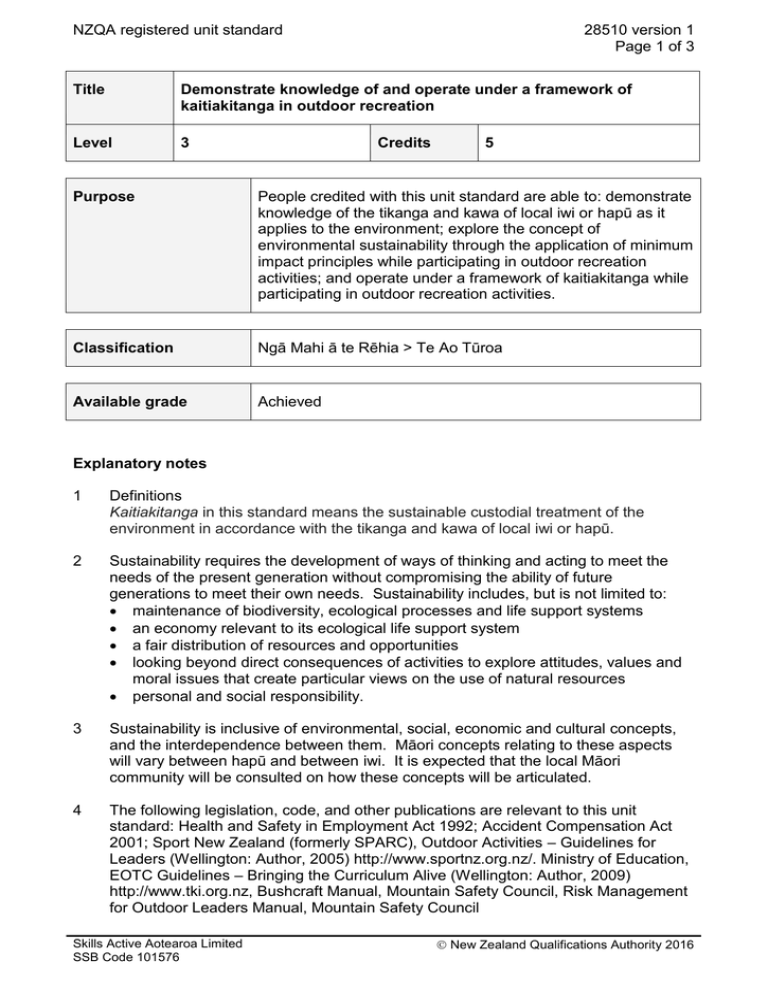
NZQA registered unit standard 28510 version 1 Page 1 of 3 Title Demonstrate knowledge of and operate under a framework of kaitiakitanga in outdoor recreation Level 3 Credits 5 Purpose People credited with this unit standard are able to: demonstrate knowledge of the tikanga and kawa of local iwi or hapū as it applies to the environment; explore the concept of environmental sustainability through the application of minimum impact principles while participating in outdoor recreation activities; and operate under a framework of kaitiakitanga while participating in outdoor recreation activities. Classification Ngā Mahi ā te Rēhia > Te Ao Tūroa Available grade Achieved Explanatory notes 1 Definitions Kaitiakitanga in this standard means the sustainable custodial treatment of the environment in accordance with the tikanga and kawa of local iwi or hapū. 2 Sustainability requires the development of ways of thinking and acting to meet the needs of the present generation without compromising the ability of future generations to meet their own needs. Sustainability includes, but is not limited to: maintenance of biodiversity, ecological processes and life support systems an economy relevant to its ecological life support system a fair distribution of resources and opportunities looking beyond direct consequences of activities to explore attitudes, values and moral issues that create particular views on the use of natural resources personal and social responsibility. 3 Sustainability is inclusive of environmental, social, economic and cultural concepts, and the interdependence between them. Māori concepts relating to these aspects will vary between hapū and between iwi. It is expected that the local Māori community will be consulted on how these concepts will be articulated. 4 The following legislation, code, and other publications are relevant to this unit standard: Health and Safety in Employment Act 1992; Accident Compensation Act 2001; Sport New Zealand (formerly SPARC), Outdoor Activities – Guidelines for Leaders (Wellington: Author, 2005) http://www.sportnz.org.nz/. Ministry of Education, EOTC Guidelines – Bringing the Curriculum Alive (Wellington: Author, 2009) http://www.tki.org.nz, Bushcraft Manual, Mountain Safety Council, Risk Management for Outdoor Leaders Manual, Mountain Safety Council Skills Active Aotearoa Limited SSB Code 101576 New Zealand Qualifications Authority 2016 NZQA registered unit standard 28510 version 1 Page 2 of 3 http://www.mountainsafety.org.nz/Resources/default.asp, Leave No Trace principles, http://www.leavenotrace.org.nz/, Outdoor Safety Code, Water Safety Code, Boat Safety Code. Outcomes and evidence requirements Outcome 1 Demonstrate knowledge of the tikanga and kawa of local iwi or hapu as it applies to the environment Evidence requirements 1.1 Examples of kaitiakitanga and environmental sustainability are identified in accordance with the tikanga and kawa of local iwi or hapū. Outcome 2 Explore the concept of environmental sustainability through the application of minimum impact principles while participating in outdoor recreation activities Evidence requirements 2.1 Minimum impact principles are described in terms of considerations for outdoor recreation activities Range 2.2 impact of activity on the environment, impact on self and other users, leave no trace principles Individual responsibility for operating within the minimum impact principles is identified in terms of own behaviours and participation in outdoor recreation activities. Outcome 3 Operate under a framework of kaitiakitanga while participating in outdoor recreation activities. Evidence requirements 3.1 Respect for the environment is demonstrated through the personal application of tikanga and kawa, and environmental sustainability principles while participating in outdoor recreation activities. Planned review date Skills Active Aotearoa Limited SSB Code 101576 31 December 2020 New Zealand Qualifications Authority 2016 NZQA registered unit standard 28510 version 1 Page 3 of 3 Status information and last date for assessment for superseded versions Process Version Date Last Date for Assessment Registration 1 17 September 2015 N/A Consent and Moderation Requirements (CMR) reference 0099 This CMR can be accessed at http://www.nzqa.govt.nz/framework/search/index.do. Please note Providers must be granted consent to assess against standards (accredited) by NZQA, before they can report credits from assessment against unit standards or deliver courses of study leading to that assessment. Industry Training Organisations must be granted consent to assess against standards by NZQA before they can register credits from assessment against unit standards. Providers and Industry Training Organisations, which have been granted consent and which are assessing against unit standards must engage with the moderation system that applies to those standards. Requirements for consent to assess and an outline of the moderation system that applies to this standard are outlined in the CMR. The CMR also includes useful information about special requirements for organisations wishing to develop education and training programmes, such as minimum qualifications for tutors and assessors, and special resource requirements. Comments on this unit standard Please contact Skills Active Aotearoa Limited info@skillsactive.org.nz if you wish to suggest changes to the content of this unit standard. Skills Active Aotearoa Limited SSB Code 101576 New Zealand Qualifications Authority 2016
